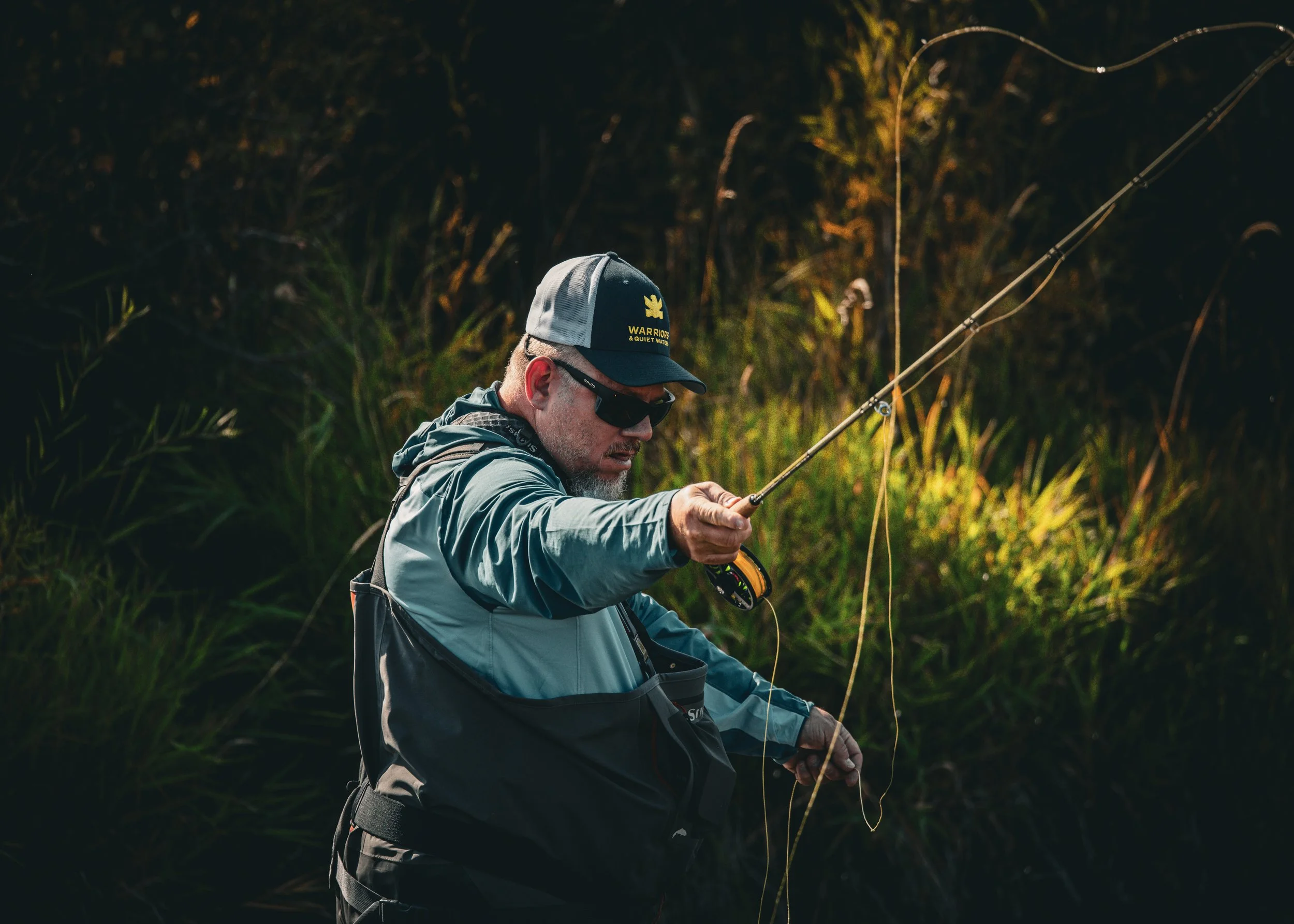Getting Left of Bang
Warriors don’t need fixing. they need purpose.
Twenty-two veterans die by suicide each day. For over a decade, this statistic has dominated conversations about veteran mental health, driving well-intentioned efforts to expand access to traditional care. Yet despite unprecedented investment in mental health services and reduced stigma around seeking treatment, veteran suicide rates remain 1.5 times higher than the general population. Something fundamental isn't working.
The uncomfortable truth lies buried within that "22 a day" figure, which emerged from a 2012 VA report analyzing 2009 and 2010 data. At the time of this report – a decade into the post-9/11 wars – most of those suicides weren't happening among our newest veterans. The report found that the average age of male veterans who died by suicide at that time was nearly 60 – men who served in Vietnam, the Cold War, and earlier conflicts. Meanwhile, post-9/11 veterans averaged just 26 years old in 2010, creating a striking 30-year age gap between the suicide victims and America's newest combat veterans.
But the 2024 VA data reveals something far more urgent: since 2001, suicide rates among veterans aged 18-34 have increased by over 120%. This youngest cohort now experiences the highest suicide rates of any veteran age group – 47.6 per 100,000 in 2022 compared to 35.5 for ages 35 -54 and 31.2 for ages 55-74.
The suicide crisis among post-9/11 combat veterans isn’t coming. It’s happening now. And what we’ve been doing to stop it isn’t working.
In military terms, we need to get "left of bang."
Bang is the catastrophic event – in this case, suicide. Left of bang means acting before disaster strikes, identifying and disrupting the pathways that lead someone to see suicide as their only option. But here's where we've gotten it wrong: we've been treating this as a mental health crisis when it's actually an existential one.
The evidence is stark. According to the VA's own 2024 suicide report, nearly 40% of veteran VHA users who died by suicide had no documented mental health disorder. These weren't Warriors "broken" by combat trauma. These were people who couldn't find meaning, purpose, or relevance in civilian life after military service.
This challenges everything about how America thinks about its veterans. We've created a narrative that portrays combat veterans as victims – damaged by their service, requiring care, needing to be "helped." This narrative is not just wrong; it's destructive. It transforms some of our most capable, resilient citizens into victims in a system that tells them they're permanently broken.
The truth is more complex and more hopeful. Veterans aren't fragile. They're products of one of the most rigorous selection and training processes in human history. They've demonstrated the capacity not just to survive adversity, but to grow stronger because of it – what I call antifragility. The problem isn't that military service broke them; it's that our society has failed to provide pathways for them to continue serving something greater than themselves.
This isn't a failure of character – it’s a predictable result of how we transition our Warriors back to civilian life. We focus on job placement and education benefits while largely ignoring the deeper human needs that military service fulfilled: belonging, purpose, challenge, and the profound satisfaction of being part of something larger than oneself.
Consider what military service provides: immense purpose, deep brotherhood, challenging standards that promote continuous personal growth, work of national significance that transcends individual achievement, and a profound sense of honor and pride in something larger than yourself. Then consider what many veterans find in civilian life: isolation, corporate jobs disconnected from larger meaning, and a society that either pities them as victims or ignores them entirely. Is it any wonder that some begin to question whether their lives still matter? The answer isn’t more therapy – it’s more purpose.
There’s another way. Instead of treating veterans as victims, we treat them as leaders of immense potential. Instead of pathologizing their military experience, we build on the attributes that made them Warriors in the first place. Through challenging experiences in nature and evidence-based programming, in Warriors & Quiet Waters’ Built for More Program we help veterans rediscover purpose and build the connections that make life worth living through empowerment, not treatment.
The stakes couldn't be higher for investment in new approaches like Built for More and we don’t have the luxury of waiting. The veteran suicide crisis is upon us. We have approximately 2.7 million post-9/11 veterans – many already struggling to find purpose and meaning in life after the military. The decisions we make today will determine whether they become the next generation lost to suicide or whether they become mentors, leaders, and exemplars of how military service can launch extraordinary civilian lives.
Getting left of bang requires abandoning approaches that aren't working.
It means recognizing that access to mental health services, while important, isn't sufficient. It means understanding that veterans don't need to be "fixed" – they need to be empowered to build lives that feel as meaningful as their military service.
Most importantly, it means seeing veterans for what they actually are: not victims of their service, but carriers of its values. When we help them find ways to continue serving, to continue mattering, to continue making their fallen brothers' and sisters' sacrifices meaningful, we don't just prevent suicide – we unleash some of the most capable leaders our nation has produced.
The choice is ours. We can continue with symbolic gestures and expanding a system that treats veterans as broken, watching the suicide rate remain stubbornly high. Or we can get left of bang by empowering veterans to build lives of purpose before crisis strikes.
According to the VA’s 2024 report, seventeen veterans died by suicide yesterday. Seventeen more will die today. But the post-9/11 veteran struggling with meaning right now, wondering if their service mattered – their story isn't written yet.
We can change that story. We must change it. The question is whether we have the courage to abandon what isn't working and embrace new approaches.
Brian Gilman, Colonel USMC (Retired).
Brian Gilman is CEO of Warriors & Quiet Waters and a retired U.S. Marine Corps Colonel who served multiple combat deployments in Iraq and Afghanistan.





